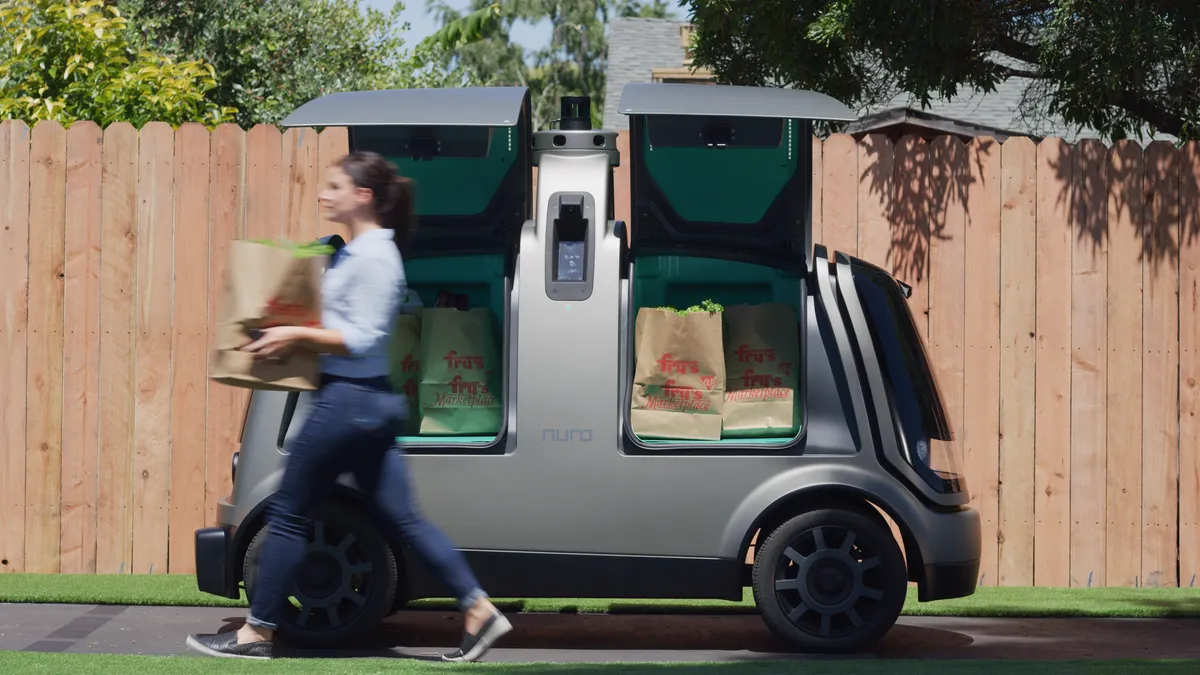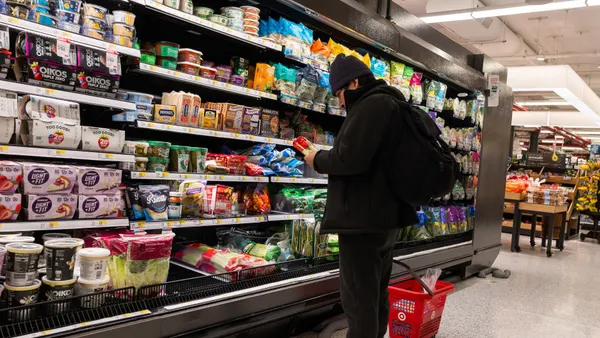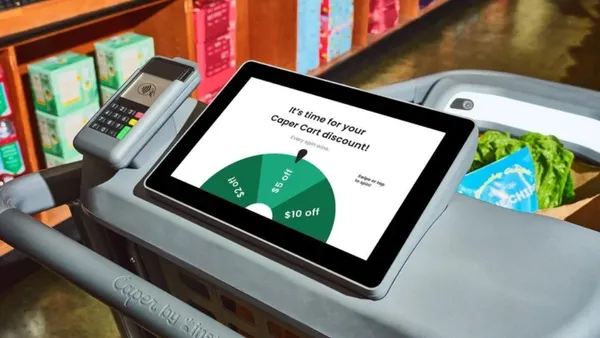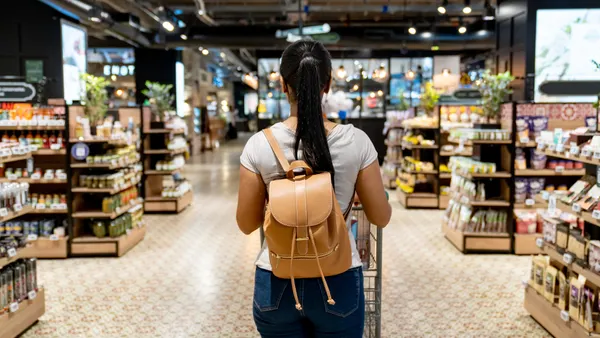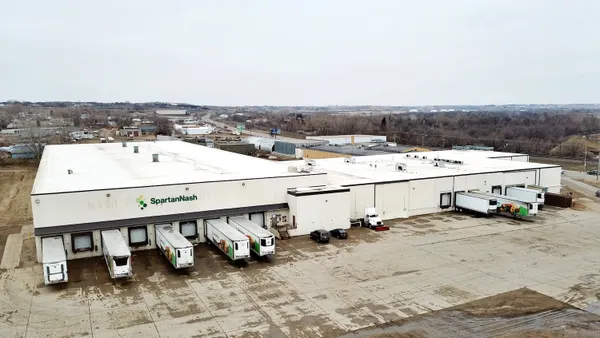Dive Brief:
- Kroger announced it will begin piloting its automated grocery delivery at a single Fry's Food and Drug Store in Scottsdale, Arizona today. In June, Kroger announced the program and its partnership with robotics firm Nuro.
- Customers can place their orders through the Fry's website or mobile app, then choose same-day or next-day delivery. There is no minimum order and the cost is a $5.95 flat fee.
- "We're excited to launch our autonomous vehicle delivery pilot with Fry's in Scottsdale," Kroger's chief digital officer Yael Cosset said in a statement. "Kroger wants to bring more customers the convenience of affordable grocery delivery, and our pilot with Nuro will help us test and learn to understand customer acceptance of autonomous vehicles in our seamless offering.
Dive Insight:
In setting out to combat high delivery costs associated with the last mile, Kroger chose to launch in Scottsdale, a growing and highly competitive market that's also become a technology hub in recent years.
According to real estate firm Jones Lang LaSalle, nearby universities, technology firms and an increase in housing in the Phoenix area have brought in an influx of affluent young customers — the type that will gravitate towards driverless delivery and ultimately put the service through its paces. There's also a wellspring of tech talent in the Phoenix area that will help Kroger and Nuro field key positions. Local reports from July pointed to job listings indicating the companies would launch the pilot in the area.
Arizona has become a preferred destination for autonomous vehicle testing, Nuro co-founder Dave Ferguson noted. One of Kroger's fiercest rivals, Walmart, is also in testing mode nearby. Last month, the company announced a single-store pilot with Waymo that will allow shoppers who have ordered grocery pickup orders to be transported to and from the store in self-driving vehicles
The “last mile,” also known as the journey from the retailer to the customer’s home, can be extremely costly for companies due to high logistic and cost concerns. “Automation could significantly reduce labor costs, driving massive improvements to fulfillment and delivery efficiency overnight,” Barclays noted in a recent report. Eighty percent of the delivery costs are associated with labor expenses and wages, the report stated.
In addition to reducing labor spending, which weighs heavily on last-mile operations, Nuro’s fully electric vehicles could help Kroger cost effectively reach low-density markets, opening up its e-commerce platform to more customers. Right now, most delivery services focus on metropolitan markets, where grocers can fill a lot of orders within a limited radius. Kroger currently partners with Instacart and a few other providers for delivery in major markets.
But driverless delivery faces numerous challenges, making this something of a moonshot for Kroger right now. Nuro's vehicle only travels between 25 and 35 miler per hour, making its speed, not to mention its viability on highways and Interstates, a question mark. Kroger is also far from the only company investing in driverless technology. Amazon and Walmart are in a class by themselves when it comes to technology investments, and will challenge any advancements Kroger makes in driverless delivery and other areas.
Still, this doesn't erase Kroger's need to forge ahead on technology. And the grocer has been doing just that, with recent investments in online shopping, meal kits, automated warehouses and a partnership with Chinese e-tailer Alibaba. Kroger knows full well that if it doesn’t work to get ahead of its competitors and consumers that are moving online and in all sorts of other directions, it will quickly get left in the dust.



